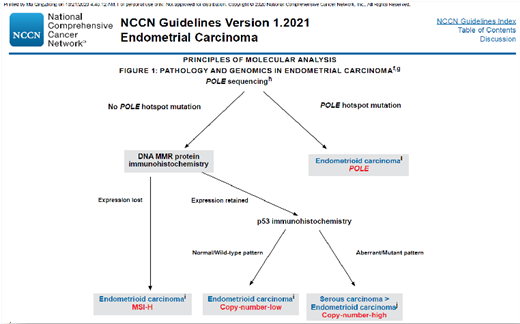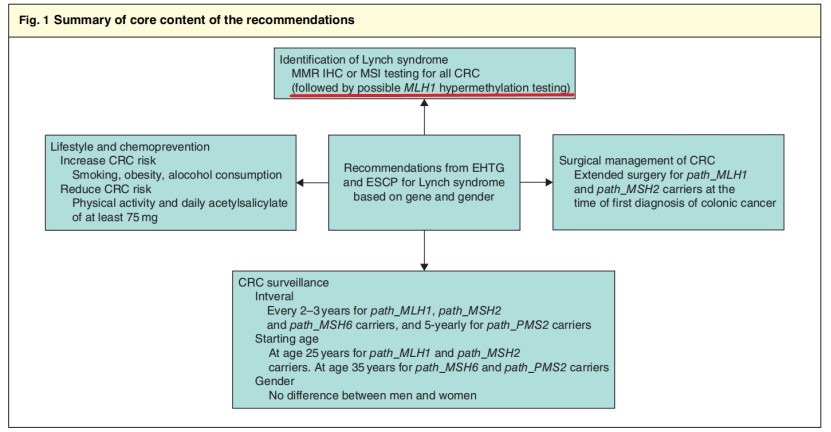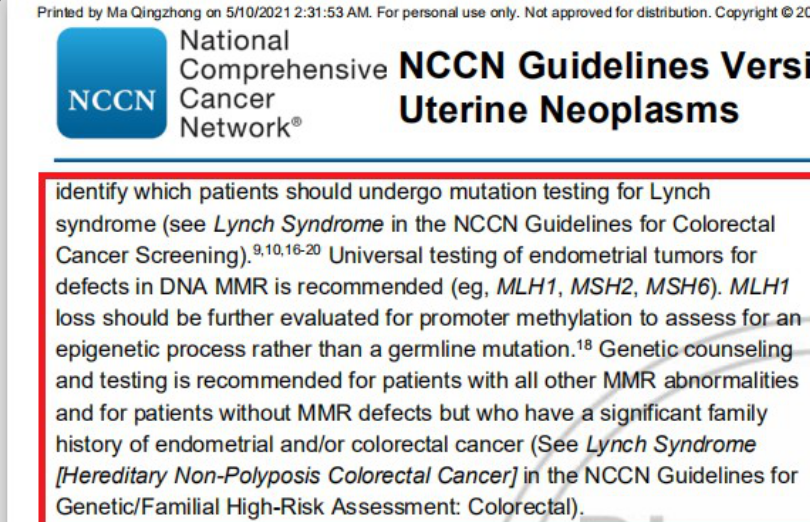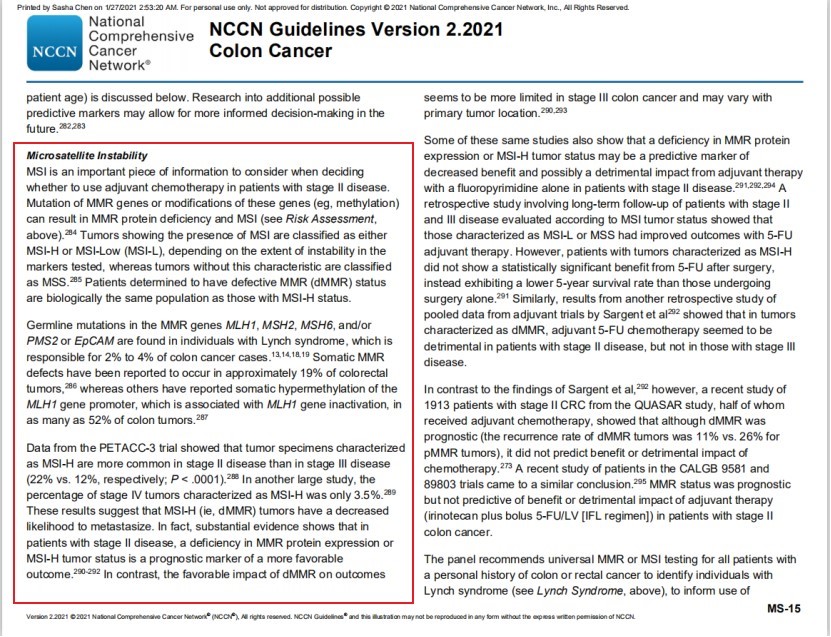Current location: Home > NEWS > Corporate news
NEWS
PRODUCTS
Spacegen has launched new RUO products:MLH1 gene methylation detection kit
News source: Release time:[2021-09-08]
AboutMLH1 gene methylation
Whenthe MLH1 protein function is lost, the MLH1 gene stay unmutated, the reason ismost likely that the MLH1 protein expression is silenced caused by themethylation of MLH1 gene.

Methylationof the MLH1 gene promoter is rarely found in Lynch syndrome (hereditarynon-polyposis colorectal cancer, HNPCC).Therefore, MLH1 genemethylation analysis can be used to distinguish sporadic and hereditarycolorectal cancer and endometrial cancer in highly unstable microsatellitetumors.In endometrial cancer, MLH1 gene methylation is highlyaggressive and need to be treated positively.
MLH1gene methylation and Lynch syndrome
Lynchsyndrome is mainly caused by germline mutations of the base mismatch repairsystem (MMR) in the four genes including MSH2, MLH1, MSH6 and PMS2, has a hightendency to develop cancer.
Patientswith Lynch syndrome can develop a variety of tumors at the same time or atdifferent times. The colon and the endometrium are the most common. Familymembers of patients are also more common to be found in colorectal cancer,endometrial cancer, gastric cancer, ovarian cancer and other tumors.Afterany first cancer, the patient's risk of developing a second cancer within 10years is 25%, and up to 50% within 15 years. More than 90% of Lynch syndromepatients have microsatellite instability (MSI) characteristics.
Microsatellitesare short tandem repeats with one or a few bases as repeat units, which arewidely distributed in various positions in the genome. Due to the sequencecharacteristics of the microsatellite site, errors are more likely to occur duringthe replication process.
Therefore,when the mismatch repair system (MMR) system fails, the errors on themicrosatellite site continue to accumulate, the length of the repeating unitchanges and cannot be corrected, which directly leads to the occurrence ofmicrosatellite instability. It can be simply Summarize that MMR is the causeand MSI is the effect.
Whenthe MLH1 protein function is lost, the MLH1 gene stay unmutated, the reason ismost likely that the MLH1 protein expression is silenced caused by themethylation of MLH1 gene.
Methylationof the MLH1 gene promoter is rarely found in Lynch syndrome (hereditarynon-polyposis colorectal cancer, HNPCC). Therefore, MLH1 gene methylationanalysis can be used to distinguish sporadic and hereditary colorectal cancerand endometrial cancer in highly unstable microsatellite tumors. In endometrialcancer, MLH1 gene methylation is highly aggressive and need to be treated positively.
Howto evaluate MLH1 gene methylation
Generally,mature technology is used to treat tumor tissue sample DNA with bisulfite, inwhich unmethylated cytosine is converted into uracil, while methylated cytosineremains unchanged. Design detection primers and probes based on the multipleknown CpG dinucleotides in the MLH1 promoter, specifically amplify the MLH1promoter sequence, and monitor the fluorescent signal of the probe on thereal-time PCR platform to achieve methylation of the MLH1 promoter Detection.
NCCNguidelines and consensus recommendations
(1)Endometrialcancer
TheNCCN 2021 V1 version recommends the molecular typing testing process forendometrial cancer

Thegeneral detection of endometrial tumors recommends the use of DNA MMR defects(such as MLH1, MSH2, MSH6). MLH1 should further evaluate the lackness ofpromoter methylation to assess epigenetic processes, but not germlinemutations.
TheEuropean guidelines for the treatment of Lynch syndrome by EHTG and ESCP: Thethird edition of the Mallorca Guidelines based on genes and gender in 2020points out that both MMR or MSI tests require MLH1 gene methylation results asa supplement.


(2)Colon cancer
MMRgene mutations or modifications of these genes (such as methylation) may leadto MMR protein deficiency and MSI. MSI tumors are divided into the followingtwo categories: MSI-H or MSI-L, depending on the marker to be detected, other tumorsthat do not have the above features are classified as MSS.Thepatient's confirmed MMR (dMMR) status is biologically the same as thepopulation with MSI-H status.The MMR genes MLH1, MSH2, MSH6 and/orPMS2 or EpCAM are found in individuals with Lynch syndrome, which accounts for2% to 4% of colon cancer cases. Approximately 19% of colorectal tumor patientshave MMR deficiency, and it is reported that the tumor’s somatic MLH1hypermethylation leads to the inactivation of this gene, which accounts for upto 52% of patients with MMR-deficient colorectal cancer.
NCCNV2.2021 version guide recommends for colorectal cancer

(3)About lynch syndrome
Lynch syndromeis the most common form of genetically determined colon cancer accounting for2% to 4% of all CRC cases. This genetic syndrome is caused by germlinemutations in DNA mismatch repair (MMR) genes (MLH1, MSH2, MSH6, and PMS2).
Although theidentification of germline mutations in the MMR gene by sequencing isdeterminate for Lynch syndrome, patients are usually selected by consideringfamily history and preliminary testing of tumor tissue before sequencing. Oneof two different preliminary tests can be performed on a CRC sample to identifyindividuals who may have Lynch syndrome.
1) Immunohistochemicalanalysis of MMR protein expression is often reduced due to mutations;
2) The analysis ofmicrosatellite instability (MSI), caused by MMR defects, is based on changes inthe length of repetitive DNA elements in tumor tissues;
3)When immunohistochemicalanalysis shows that there is no MLH1 expression in the tumor, which indicatesthat BRAF gene mutation detection is required. The presence of BRAF mutationsindicates that the down-regulation of MLH1 expression is through somaticmethylation in the promoter region of the gene, rather than through germlinemutations.
Therelevant literature guidelines and expert consensus from the United States,Europe, and China have fully pointed out the necessity of detecting MLH1 genemethylation in endometrial cancer and colorectal cancer. At present, majorresearch institutions have made prospective studies and affirmative conclusionson the significance of MLH1 methylation detection.
Basedon the molecular mechanism of cancer occurrence, Spacegen will develop and MLH1gene methylation detection kit, which is used for clinical auxiliary diagnosisof endometrial cancer and colorectal cancer, brings precise medical guidancefor the treatment and rehabilitation of patients.
Productadvantage
1 Strong specificity: Closed tubedetection, avoid contamination.
2 High sensitivity: The detection can reach as low as 1%in 10 ng DNA.
3 Easy operations: One stepoperation, only 90 minutes to finish the detection.
4 Good reproducibility: Can be performedin the general PCR Labs. Results with good reproducibility can be easilyobtained without special training.
5 Advanced technologies: R&D basedon independent patented PAP-ARMS technology.
Detectionsignificance and applicable people
Genetic riskworn: The MLHI gene methylation detection has a suggestive effect on the familyheredity of the tumor. If the MMR function is missing due to the methylation ofthe MLH1 gene, the family heritability is not high, otherwise it may besuspected of family hereditary Lynch syndrome. As the risk of cancer isincreased, further germline sequencing analysis and genetic counseling arerecommended.
Cancerclassification and treatment guidance: If MLH1 is methylated, theexpression of MMR protein in the cancer tissue is lost, which indicates that itis a sporadic cancer. If this happens in colorectal cancer and endometrialcancer often indicate a poor prognosis and active treatment is recommended.
Applicablepeople: patients with colorectal cancer and endometrial cancer.